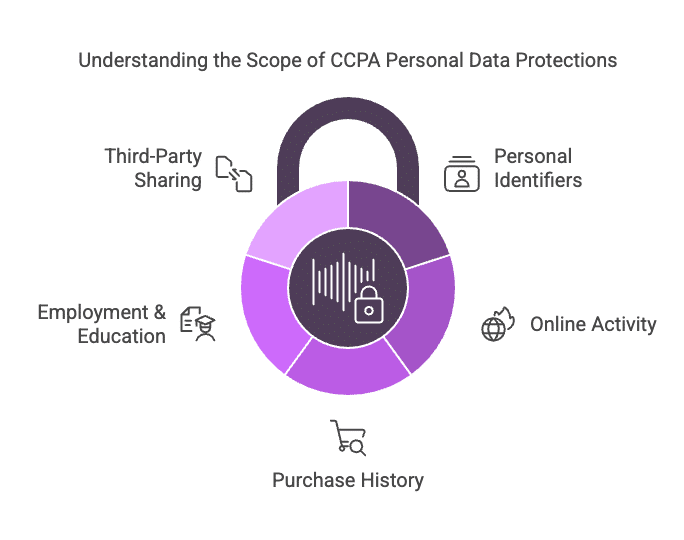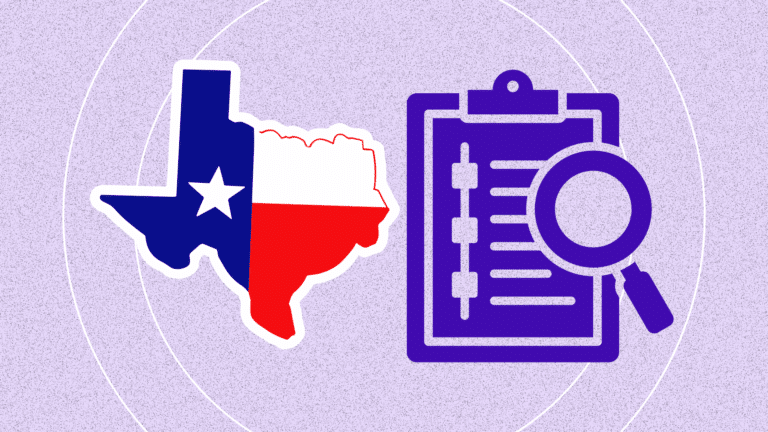TL;DR
- CCPA grants consumers the right to access, delete, and opt out of the sale of their personal data.
- Any company doing business in California—or serving California residents—may be subject to CCPA requirements.
- Penalties for non-compliance can include fines of $2,500–$7,500 per violation and class-action lawsuits.
- Compliance starts with visibility: you must know what data you collect, how it’s used, and who it’s shared with.
- Feroot helps organizations monitor and secure client-side data flows to stay CCPA-compliant and reduce risk.
Introduction to the CCPA
The California Consumer Privacy Act (CCPA) is the first comprehensive California data privacy law granting consumers control over how their personal information is collected, used, and shared. It was enacted in 2018 and took effect on January 1, 2020, signaling a national shift in privacy regulations. With increasing emphasis on transparency and accountability, businesses must now adhere to a new standard in consumer data protection California.
Applicability Criteria
The CCPA applies to any for-profit business that operates in California and meets at least one of the following thresholds:
- Annual revenue from selling exceeds $25 million.
- Buys, receives, shares, or sells or shares personal information of 100,000+ consumers or households.
- Derives 50% or more of annual revenue from sale of personal information.
These criteria apply even if your business is not physically based in California. If your operations involve collecting the personal information of California residents, you are likely subject to CCPA.
Compliance Requirements
Businesses that fall under the CCPA must comply with several regulatory mandates:
They must inform consumers at or before the point of data collection, provide mechanisms to sell my personal information or opt out of such practices, and offer access to, deletion of, and transparency about categories of personal information collected and shared. They must also display a California privacy rights act notice or similar signal on their site where appropriate.
Businesses should enable users to opt out of the sale or sharing of their data and include functionality to limit use of sensitive personal identifiers. The CCPA prohibits discrimination against users who exercise these rights.
What the CCPA Protects

The definition of personal information under CCPA is broader than many businesses expect. It includes:
- Names, email addresses, phone numbers, and personal identifiers
- IP addresses, geolocation, and online activity
- Purchase history, behavioral trends, and inferences
- Employment, education, or information of California residents
The law also includes categories of third parties with whom personal data is shared, requiring companies to disclose both the categories of personal information collected and the categories of recipients involved.
Understanding Personal Information Under CCPA
Many businesses fail to fully grasp what qualifies as consumer’s personal information. It goes beyond basic identifiers to include data such as personal information links, behavioral tracking, device fingerprints, and even share the personal information practices that may be embedded in website code, such as third-party scripts or analytics tools.
The CCPA also requires that organizations list categories of personal information and their purposes—ranging from analytics and targeting to service improvement or sale of their personal data to advertisers or partners.
Exceptions and Industry Carve-Outs
Certain types of data are excluded from the scope of CCPA, such as:
- Medical records covered by HIPAA
- Financial information protected under the GLBA
- Credit data regulated by the FCRA
Additionally, employee and B2B communications were initially exempt but are now partially included under the California Privacy Rights Act (CPRA), which builds on and expands CCPA protections.
Business Examples and Use Cases
Example 1: An e-commerce brand based in Texas sells to California residents and generates significant revenue from selling product data to affiliates. This company is obligated to comply.
Example 2: A software vendor serving 50,000 users—but sharing anonymized data with multiple third-party ad platforms—may fall under scrutiny for how it shares the personal information, even if it’s not explicitly selling it.
Example 3: A digital health app stores behavioral and geolocation data linked to California residents. Even if it’s used only for analytics, if such data is shared with third parties, CCPA rights may apply.
CCPA Enforcement and Penalties
The California Privacy Protection Agency and the California Attorney General enforce the law. Penalties include:
- $2,500 per unintentional violation
- $7,500 per intentional violation
- Legal exposure for data breaches due to inadequate safeguards
Consumers also have private rights of action if their personal information of California residents is compromised due to negligence.
The financial and reputational damage caused by CCPA noncompliance—especially in high-visibility sectors like retail, SaaS, or healthcare—is considerable.
Key Regulatory Bodies
Two major entities oversee CCPA enforcement:
- California Attorney General’s Office – Original enforcer of the law until 2021.
- California Privacy Protection Agency (CPPA) – Established by CPRA to take over enforcement, rulemaking, and business guidance.
These authorities issue guidelines, investigate complaints, and take legal action where businesses fail to uphold california privacy protection age… standards.
Strategic Compliance Tips
Compliance isn’t just about avoiding fines—it’s about future-proofing your operations.
Start by mapping all data flows and identify all categories of personal information and their processing purposes. Update your privacy policy to include detailed notice requirements, opt-out procedures, and specific effect on January deadlines. Use tools to handle data subject requests, track opt-outs, and limit data exposure to categories of third parties.
Additionally, assign a privacy team or DPO to coordinate all CCPA compliance efforts and ensure technical implementation aligns with legal expectations.
CCPA vs GDPR: Key Differences
The General Data Protection Regulation (GDPR) is often compared to the CCPA. While both laws aim to protect privacy, GDPR is more stringent on consent and applies globally. CCPA, by contrast, is opt-out-based and focused on sale of personal information.
Key distinctions include:
- GDPR requires explicit consent for most processing.
- CCPA allows data collection by default unless users opt out.
- GDPR offers broader coverage across all personal data; CCPA emphasizes categories of personal information related to commercial use.
For companies operating internationally, aligning your compliance frameworks with both CCPA and data protection regulation GDPR is essential.
CPRA and the Evolution of California Privacy Laws
The CPRA expansion significantly strengthens and extends the CCPA by:
- Lowering thresholds for covered businesses
- Expanding categories of personal information
- Introducing the right to correction
- Formalizing new rights around sharing personal information for cross-context behavioral advertising
It also clarifies rules on sensitive personal data and gives the California Privacy Protection Agency broader oversight and enforcement powers.
Companies must treat CPRA not as a separate law but as an evolved form of CCPA, requiring both policy and infrastructure changes.
Final Thoughts
If your business interacts with California consumers—whether you’re selling apparel, running a SaaS platform, or managing online tracking technologies—you must determine your CCPA obligations. In an era of expanding data protection laws and rising consumer expectations around transparency and privacy, compliance is no longer optional. Feroot helps simplify this process by providing automated, real-time solutions that secure personal data, detect tracking violations, and ensure your website remains fully CCPA-compliant—without slowing down your business.
FAQ
Who does CCPA apply to?
CCPA applies to any for-profit business that serves California residents and meets at least one of the following:
- Annual gross revenue over $25 million
- Buys/sells/shares personal data of 100,000+ consumers or households
- Derives 50% or more of annual revenue from selling consumer personal data
What’s the difference between CCPA and CPRA?
The California Privacy Rights Act (CPRA) amends and expands CCPA. Key changes include:
- New rights (e.g. correction of personal data)
- Stricter rules for sensitive personal information
- Creation of the California Privacy Protection Agency (CPPA)
What counts as selling data under CCPA?
“Selling” includes sharing consumer data with third parties in exchange for value — not just money. This may include sharing data with advertising networks, analytics tools, or partners that use tracking scripts or pixels.
How can CISOs help achieve CCPA compliance?
CISOs play a key role by:
- Mapping data flows and third-party script behavior
- Implementing access controls and security safeguards
- Monitoring client-side activity that affects consumer data
Does Feroot help with CCPA compliance?
Yes. Feroot provides visibility and control over client-side behaviors (like tracking pixels and shadow code) that impact personal data. This helps fulfill key CCPA requirements for transparency, access, and security.


